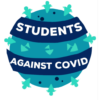by Fatima Iqbal
COVID-19 is not something that could easily be categorized; it held many shades of grey for me. Nobody in their right mind could have predicted that we would go through a pandemic. It still seems surreal to me sometimes. Despite still being under the threat of the virus, people have become immune to the idea of life and death.
2020 started out great. I was excelling in academics and my clinical rotations had just started so I was keeping track of all my firsts i.e. my first interaction with a patient, the first time I scrubbed in, first time I had made a diagnosis in my head and gotten it right. The whole experience was really exciting to me, but the extended academic hours were somewhat distressing. I would silently pray to God for a 2-week break because I was so exhausted. Managing to get everything done while in medical school is a challenge, be it studies, socializing, getting all your chores done, or sleeping. You are always falling behind on something and there is really no way around it.
Start of March 2020, my country encountered its first COVID patient. I remember going to my university that day, everyone was panicking. No one had any idea how to react to the whole situation, there was a shortage of masks and sanitizers. It was my last day at my university before the virus spread. Even though all of us had gone home thinking we would meet the next day, we didn’t realize we would not see each other for 7 months.
In March there was a country-wide lockdown imposed on us by the government. We were all strictly following the guidelines provided to us by the government. Seeing the number of cases in the morning had become a habit by this time. I saw how hospitals ran out of beds and oxygen. Seeing headlines of people succumbing to death daily used to give me so much anxiety. I was so scared of losing my parents, grandparents and siblings to COVID-19. Even with all the news and mass education, there was still a huge number of people who believed COVID-19 to be a hoax. They wouldn’t wear masks and wouldn’t keep at a safe distance, thus putting us all at risk. The economy started crumbling pretty quickly so the government had no choice but to allow people to conduct their businesses under strict SOPs.
We were falling behind on education. My university didn’t start Zoom classes until late April. Even though it was really convenient to sit at home and attend lectures, we were getting no clinical exposure and therefore were unable to follow the course content. It is generally expected from third year MBBS students in Pakistan to be able to take history and do basic examinations like General Physical Examination (GPE) and Abdominal Examination, but with the little training we got from Dec 2019 to Feb 2020, it wasn’t enough. It was expected of us to complete assignments, attend each lecture, and act normally in the face of the horrible news and our loved ones’ passing through COVID-19.
Sometimes ignorance truly is bliss. The reason I say this is because I saw how people who could not comprehend the catastrophic consequences of not following SOPs went on about their lives as if nothing had happened. On the other hand, people belonging to the healthcare field including myself could feel our mental health decline as the pandemic progressed. Although breathing exercises and grounding techniques helped lower my anxiety levels, I wanted COVID-19 to end because it was too stressful. Till now, Pakistan has been hit by four waves, and with each wave I go into this spiral of worrying about the things that could go wrong in seconds. Our on-campus classes resumed in September but it was never really the same. It seemed as though everyone I met had experienced some kind of trauma or loss, and there was nothing I could do to make it better.
Although I got to spend a lot of time with my family and as valuable as it was for me, I still wouldn’t consider it quality time as it was mostly surrounded by the worries of covid. I think COVID-19 really changed my outlook on life. I don’t take my family or friends for granted anymore. I try not to miss out on anything since I don’t know which variant of COVID-19 would hit us next. I practice mindfulness because I realized that it’s really easy to stay positive when you’re surrounded by people and work, but when you have nothing to distract yourself, it can be incredibly dark. Also, I learned to be really careful of what I wish for; that 2-week long break that I had prayed for ended up lasting 7 months.
